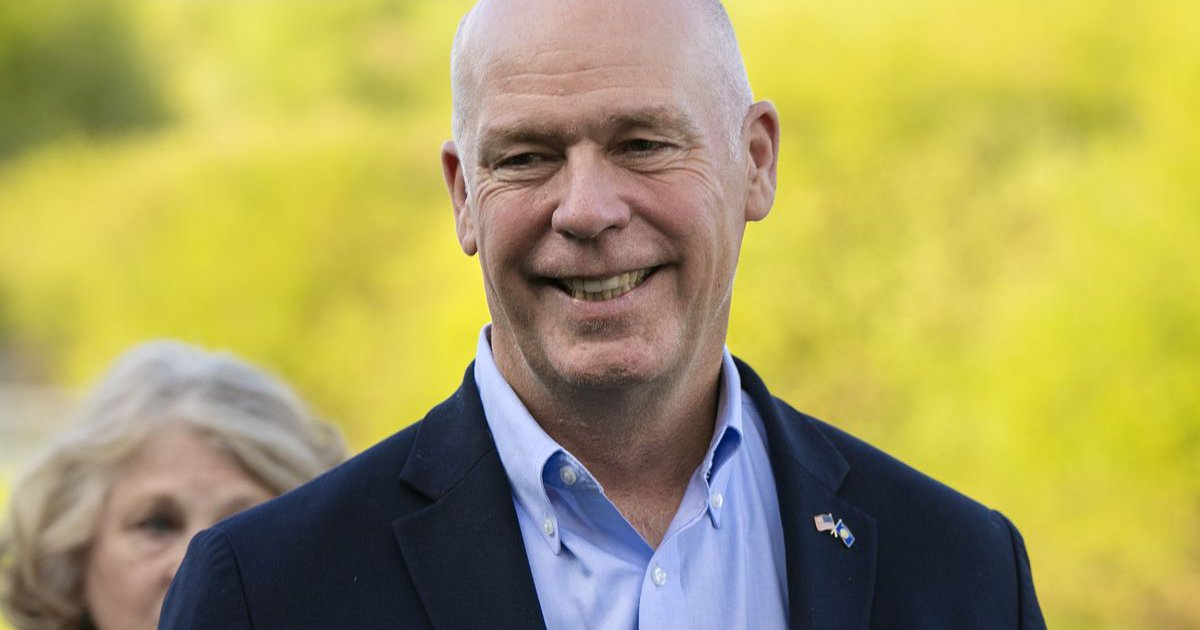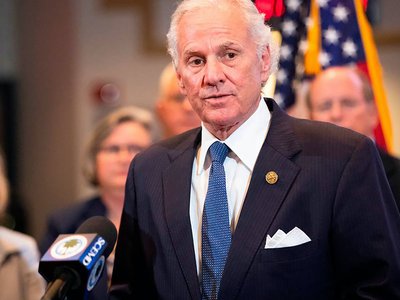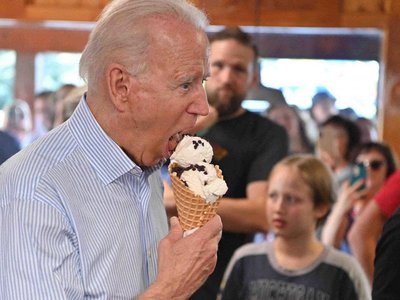Calling it a road map to Montana’s comeback, Gov. Greg Gianforte on Thursday unveiled his proposed budget, one that invests in teacher pay, cuts payroll taxes for roughly half of all working residents, and leaves around $450 million in reserves.
Gianforte ran on a campaign of cutting taxes and right-sizing state government, and on Thursday, he said his budget does all that he promised.
“It provides about $50 million in broad-based and targeted tax reductions,” he said. “Because we have the second highest individual income tax rate in the Rocky Mountain West, too many businesses chose to take their operations and the associated jobs to Wyoming, Colorado, Utah and Arizona.”
Under his proposal, Gianforte said working Montanans would keep more of what they earn by cutting the income tax rate to 6.75%. As a result, he said, roughly half of all working Montanans would see income tax cuts of around $30 million a year.
“This is just a first step,” he said. “As we find greater efficiencies in government and our economy continues to grow, we’ll continue to cut taxes and make Montana more competitive with our neighbors. Our goal is to continue cutting tax rates in incremental steps over time.”
Montana Democratic leaders, including Senate Minority Jill Cohenour and House Minority Leader Kim Abbott, said they’d be watching the budget process closely and opposed deep cuts to government services.
“The Governor’s proposal is the starting point of a lengthy legislative budget process. Democrats are committed to creating jobs and opportunity for all Montanans, and that means holding the line on unnecessary cuts made on the backs of working families to pay for tax breaks for the wealthy,” they said in a joint release on Thursday.
The budget would also waive up to $200,000 in business equipment taxes for small businesses. He said around 4,000 small business owners would no longer have to value their equipment or pay the tax up to that amount.
It also provides incentives for businesses to relocate to Montana and bring jobs to the state. It targets the state’s reappraisal process as well and the role it plays in driving up home values.
“Every two years like clockwork, reappraisals drive up Montanans’ property tax bills,” Gianforte said. “Our budget provides an additional $3 million per year to help lower-income Montanans, including seniors and disabled vets, who shouldn’t have to choose between putting food on the table and paying prescription drug cots or paying skyrocketing property taxes.”
Gianforte’s budget also looks toward education. Among other things, it would provide around $2.5 million in incentives for local school districts to improve teacher pay through Tomorrow’s Educators Coming Home Act.
“Montana has the worst starting teaching pay in the country today,” he said. “It makes it hard to recruit starting teachers. The salary forces teachers to leave. We must do better.”
Also on education, Gianforte’s budget would invest in trades education in an attempt to close the gap between businesses needing workers and the state’s lack of skilled workers.
It’s been a challenge for years and with the Baby Boomer generation nearing retirement, economic experts believe the problem will worsen if not addressed.
“We hear from small businesses around the state that they can’t find enough skilled workers. This budget helps bridge that skills gap by boosting trades education. This will help create better opportunities for Montanans across the state.”
Gianforte’s campaign platform also targeted drug addiction, and his budget would invest around $23 million in state and federal funding each year to community substance abuse and treatment programs.
Some of that revenue would come from state taxes on marijuana, which voters approved in November. It also taps into the tobacco tax revenue to build what he called the Healing and Ending Addiction Through Recovery and Treatment fund.
“The HEART fund will help fill the gaps in our current system,” he said. “When leveraged with federal Medicaid funds, it will fund a full continuum of substance abuse prevention and treatment programs in communities across the state.”
The budget also provides funding to five drug courts and would add 14 new parole and probation officers to help provide reentry services, along with more mental health and substance abuse treatment programs in the correctional system.
Gallatin and Flathead counties would receive an additional District Court judge.
“After a decade of out-of-control spending increases, this budget brings fiscal responsible back to state government while providing essential services,” Gianforte said. “Total general fund increases increase less than 1% per year. This will help unlock our state’s full potential.”
The vast majority of the savings come from decreasing the increases proposed in the budget presented by former Gov. Steve Bullock.
Budget Director Kurt Alme said the budget cuts general fund spending by $100 million over the biennium compared to Bullock’s proposed budget. Gianforte’s budget doesn’t dip into the budget stabilization fund, Alme said.
“It leaves us with a strong ending fund balance that’s $50 million greater than that of our previous administration’s budget,” Alme said. “We’ll accomplish lower taxes, more jobs and greater competitiveness. This budget really is the road map to a Montana comeback.”
Gov. Gianforte cuts taxes, invests in teacher pay, rewards job creation
Calling it a road map to Montana’s comeback, Gov. Greg Gianforte on Thursday unveiled his proposed budget, one that invests in teacher pay, cuts payroll taxes for roughly half of all working residents, and leaves around $450 million in reserves.






